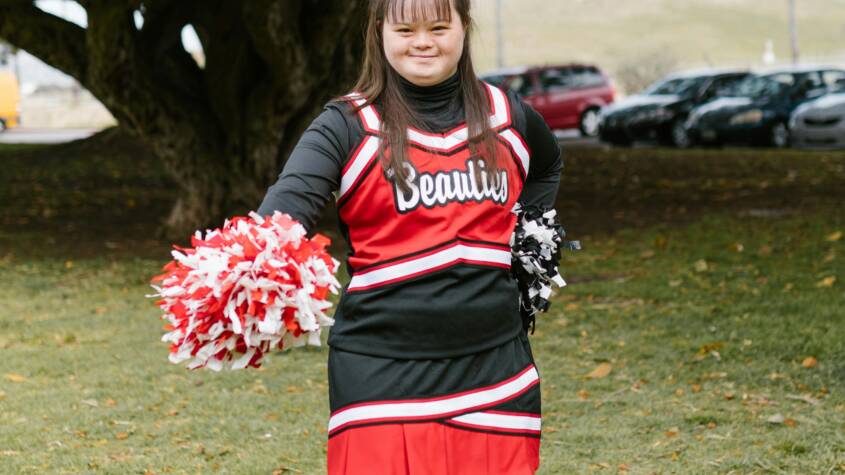
Young adults with autism face unique challenges as they transition into independence, which makes tailored programs essential. These programs provide support in areas such as social skills, employment readiness, and daily living tasks, helping them navigate adult life more effectively. By focusing on individual strengths and needs, these initiatives make a significant impact on their quality of life.
Many organizations offer specialized programs designed to empower young adults on the autism spectrum. With a variety of resources available, participants can find opportunities that fit their individual goals, whether it’s gaining work experience or enhancing communication skills. Engaging in these programs can lead to meaningful connections with peers and mentors, fostering personal growth.
Exploring available programs can unveil valuable pathways for young adults with autism. Each initiative contributes a unique set of tools and strategies aimed at promoting both personal and professional development. As awareness of autism increases, so do the resources, creating a more inclusive environment for young adults to thrive.
Educational Programs for Young Adults with Autism
Various educational Programs for Young Adults with Autism as they transition into adulthood. These programs focus on critical areas such as higher education, vocational training, and essential life skills. Each area offers tailored support to meet the unique needs of individuals on the autism spectrum.
Transition Programs from High School to Higher Education
Transition programs play a vital role in helping students with autism move from high school to college or university settings. These programs often include workshops that focus on academic skills, social interactions, and self-advocacy.
Students learn how to navigate campus life, register for classes, and utilize available resources. Many programs also provide mentorship, pairing students with peers or faculty who understand their challenges.
This support fosters independence and prepares them for a successful college experience. Some institutions also offer tailored courses that address the specific learning styles of individuals with autism.
Vocational Training and Employment Preparedness
Vocational training programs help young adults with autism prepare for the workforce. These programs often involve hands-on experiences that allow participants to develop specific job skills.
Participants may learn everything from resume writing to interview techniques. Work-based learning opportunities, such as internships or job shadowing, are integral components.
Many vocational training programs collaborate with local businesses to create job placements for graduates. This partnership ensures that students gain relevant experience and increase their chances of employment.
Building relationships within the community can also lead to greater acceptance and understanding of autism in professional environments.
Life Skills Development Courses
Life skills courses focus on essential skills that foster independence among young adults with autism. Topics often include personal finance management, cooking, and social skills.
These courses are designed to enhance daily living skills and improve social interactions. Participants engage in role-playing activities that simulate real-life situations.
Support from instructors with expertise in autism can help participants overcome challenges. Self-care routines and community resource navigation are also frequently covered, empowering individuals to live more independently.
Overall, life skills development is crucial for enhancing quality of life and promoting self-sufficiency.
Community Involvement and Social Skills Programs
Engaging in community activities and social skills programs is crucial for young adults with autism. These opportunities enhance social interaction, foster friendships, and promote vital life skills.
Social Interaction Workshops
Social interaction workshops are structured settings where young adults practice communication skills. These workshops often include role-playing scenarios to help participants navigate social situations.
Trained facilitators guide discussions on topics such as eye contact, turn-taking, and active listening. Participants may engage in group activities to reinforce these skills, allowing them to learn from each other.
By participating, individuals gain confidence in their ability to connect with peers, which is essential for building lasting relationships. Regular workshops create a sense of routine, further enhancing their social adaptability.
Recreational Activities and Clubs
Recreational activities and clubs provide a platform for young adults to explore interests in a social environment. These programs often focus on hobbies such as sports, arts, or music.
Clubs may organize events like game nights, movie outings, or team sports that encourage participation. These activities promote teamwork and are designed to improve social interaction in a relaxed setting.
Involvement in clubs not only hones social skills but also helps individuals form friendships based on shared interests. This supportive atmosphere fosters a sense of belonging and community engagement.
Volunteering and Community Service Opportunities
Volunteering offers young adults with autism a chance to contribute meaningfully to their communities. Programs may involve assisting in local shelters, community clean-up efforts, or helping organize events.
These activities encourage teamwork and accountability, which are vital social skills. Additionally, volunteering helps participants understand the importance of giving back, enhancing their self-esteem.
By working alongside peers and community members, individuals build connections and improve their conversational abilities. Positive experiences in these roles can lead to lifelong commitments to community involvement.
Fitter First: Unlocking Your Potential for a Healthier Lifestyle
Fitter First is a concept focusing on optimizing one’s physical well-being through a struc…








